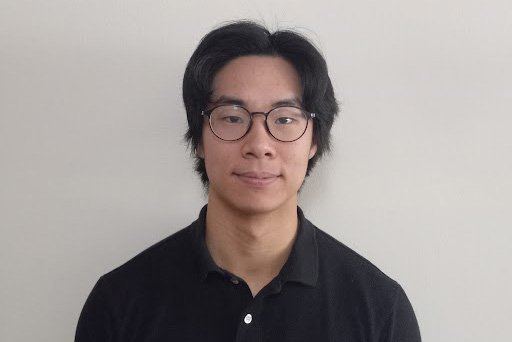CSpotlight: Computer Science and Mathematics

Why did you choose to pursue a degree in computer science specifically at the University of Minnesota?
I originally came to the University of Minnesota for physics. I took one of the introductory computer science classes that was required for physics and it was one of the most fun classes I’ve taken here. That class really sparked my interest in computer science. I didn’t really have any coding experience in high school and it wasn’t until I took that class that I became interested and wanted to learn more and hone my skills as a coder.
How did you become interested in computer science? What are your specific interests within the field?
Another thing that really developed my interest was the interesting YouTube videos on more niche aspects of computer science. Those aspects that were online were interesting but wouldn’t necessarily be taught in the classroom just because they are a little more specialized but still really cool nonetheless. Some specific interests I have include optimization problems. These problems appear everywhere in the world, like finding the best route between Point A and Point B or what’s the best grocery list for you. Optimization is a really basic and easy to understand problem but there’s a lot of depth and complexity to it.
Congratulations on earning Computer Science & Engineering Access Scholarship and the Maximillian Lando Scholarship ! How will this scholarship impact your academic and extracurricular work?
These scholarships really give me a lot of freedom to focus on classes and not have to worry so much about finding another job. It also gives me more freedom in budgeting.
Tell us more about your internship experiences.
Most summers I’ve been doing research work, but this summer I wanted to work at an office internship to see what it would be like. I interned at Aon and it wasn’t directly in computer science; it was a more business role. I was able to use some of my programming skills to speed up some processes. For one task, I learned all of the programming that I used for that problem in my very first computer science class. Learning computer science, even if you’re not going into computer science, is so useful. I just think basic programming is a need-to-know for a lot of kids.
What do you hope to contribute to the computer science community at the University?
One thing I’d like to do is try and get involved in some computer science research. I’m currently involved in some research in physics and computer engineering. The computer engineering research has some overlap with computer science, but the computer engineering one is definitely more about hardware and that’s something I’m not a complete expert on. It would be really cool to find a professor to work with more closely in computer science in the optimization field. Being able to do some computer science research work for the community would be a real honor for me.
Have you been involved with any research on campus?
Some of the research work I’m doing is involved with non-traditional computers. So, there is a little bit of branching off from computer science to computer engineering, but nonetheless we’re trying to solve problems in unique ways using computers with an expanded definition of what a computer is.
The research project in the physics department is in material science and involves forming a next generation of microscopes to study materials. I’ve been working with Assistant Professor Alex McLeod and we’ve been working on this microscope for about a year now. The real core of the microscope is a laser and it’s able to produce high power, a wide range of light frequencies, and short bursts of that light. Those are the three things that make this laser stand out. Since the laser is so well built, it’s able to generate novel phenomena that’s more than just light reflecting. While it’s a very small minute part of the field, it’s cool to contribute to science.
What advice do you have for incoming computer science students?
I think one really important thing is having a really strong foundation in mathematics. That makes it so much easier to learn a lot of the more novel computer science concepts. Having a strong foundation in math is a must-have to get further into computer science. If you want to get further into computer science and more into the real-world applications that are going on like with artificial intelligence, knowing math intimately well is really important.
What are your plans after graduation?
I’m probably going to go into graduate school. Lately, I’ve been leaning towards math. I feel like I’m only learning when I’m learning math because every time you learn something, like in physics for example, the only reason why we know it’s true is because of math. I feel like math is that foundational level where you can really learn those basic concepts. I’d probably go to graduate school here at the University of Minnesota because the math program is pretty competitive, but really good.